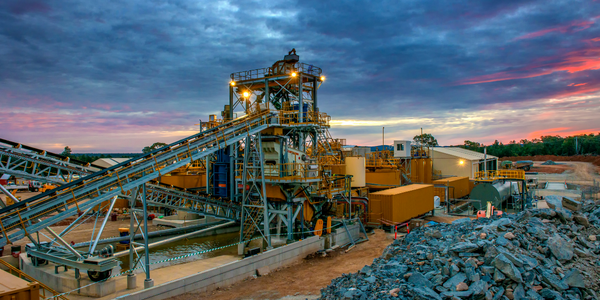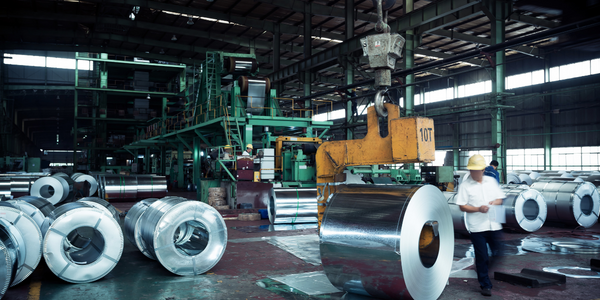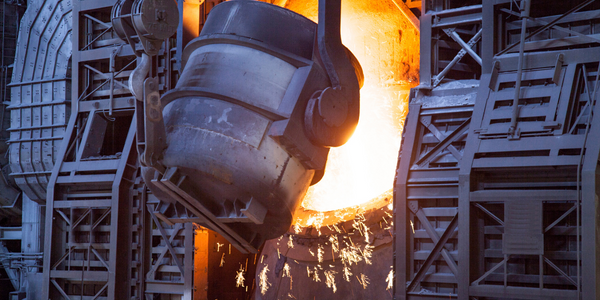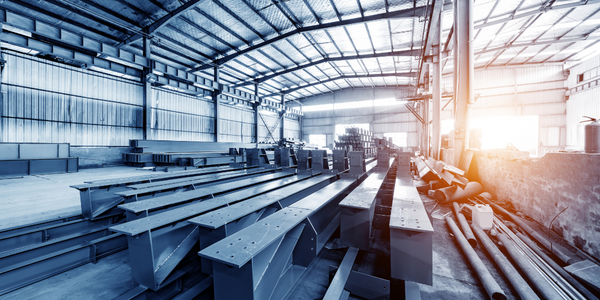Customer Company Size
Large Corporate
Region
- Europe
Country
- Russia
Product
- IBM® FlashSystem™ V840
- IBM Real-time Compression Appliance™ STN7800
- IBM System Storage® SAN Volume Controller
- IBM XIV® Storage System
- IBM Tivoli® Storage Manager
Tech Stack
- SAP ERP
- IBM FlashSystem
- IBM Real-time Compression Appliance
- IBM System Storage SAN Volume Controller
- IBM Tivoli Storage Manager
Implementation Scale
- Enterprise-wide Deployment
Impact Metrics
- Productivity Improvements
- Cost Savings
Technology Category
- Infrastructure as a Service (IaaS) - Cloud Storage Services
- Infrastructure as a Service (IaaS) - Hybrid Cloud
Applicable Industries
- Metals
Applicable Functions
- Discrete Manufacturing
- Human Resources
Use Cases
- Predictive Maintenance
- Factory Operations Visibility & Intelligence
Services
- Cloud Planning, Design & Implementation Services
- System Integration
About The Customer
Severstal is one of the world’s leading vertically integrated steel and steel-related mining companies, with assets in Russia, Latvia, Ukraine, Poland, Italy and Liberia. It has approximately 61,000 employees, and generated revenues of USD13.31 billion in 2013. Over the past seven years, Severstal has built one of the largest SAP ERP environments in Russia, supporting operational processes such as planning, production and plant maintenance for both its mining and steel divisions. The SAP landscape is constantly evolving to meet new business requirements. For example, this year, Severstal introduced SAP Advanced Planner and Optimizer for supply chain management, and SAP Mobile Platform to give employees anytime, anywhere access to SAP applications. Next year, it plans to introduce SAP Supplier Relationship Management too.
The Challenge
Severstal, one of the world’s leading vertically integrated steel and steel-related mining companies, has built one of the largest SAP ERP environments in Russia over the past seven years. The SAP landscape is constantly evolving to meet new business requirements, such as introducing SAP Advanced Planner and Optimizer for supply chain management, and SAP Mobile Platform for anytime, anywhere access to SAP applications. However, introducing these new functionalities, increasing the user-base and gaining deeper insight into operations all come at a price. The volume of data in the SAP environment was increasing rapidly, and performance was beginning to suffer. Severstal was faced with the challenge of designing a storage landscape that would scale to meet its future needs, while avoiding the expense of replacing all its existing storage systems.
The Solution
Severstal decided to work with IBM to build a smarter storage landscape. The solution uses IBM System Storage® SAN Volume Controller to create a single virtualized “pool” of storage, which includes Severstal’s existing storage systems and also introduces the IBM FlashSystem V840. Two IBM Real-time Compression Appliance™ solutions are used to compress the company’s data during backup, freeing up significant space previously used for SAP data, Oracle, VMware and the company’s email system. IBM Tivoli® Storage Manager is used to manage the tiering of the storage landscape. It automatically moves older, less important or less frequently accessed files onto lower-cost, higher-capacity storage, as well as managing the company’s backups and restores. The IBM FlashSystem platform’s all-flash array provides extremely high throughput for the data-intensive workloads generated by Severstal’s SAP applications.
Operational Impact
Quantitative Benefit

Case Study missing?
Start adding your own!
Register with your work email and create a new case study profile for your business.
Related Case Studies.

Case Study
Goldcorp: Internet of Things Enables the Mine of the Future
Goldcorp is committed to responsible mining practices and maintaining maximum safety for its workers. At the same time, the firm is constantly exploring ways to improve the efficiency of its operations, extend the life of its assets, and control costs. Goldcorp needed technology that can maximize production efficiency by tracking all mining operations, keep employees safe with remote operations and monitoring of hazardous work areas and control production costs through better asset and site management.

Case Study
KSP Steel Decentralized Control Room
While on-site in Pavlodar, Kazakhstan, the DAQRI team of Business Development and Solutions Architecture personnel worked closely with KSP Steel’s production leadership to understand the steel production process, operational challenges, and worker pain points.

Case Study
Bluescope Steel on Path to Digitally Transform Operations and IT
Increasing competition and fluctuations in the construction market prompted BlueScope Steel to look toward digital transformation of its four businesses, including modern core applications and IT infrastructure. BlueScope needed to modernize its infrastructure and adopt new technologies to improve operations and supply chain efficiency while maintaining and updating an aging application portfolio.

Case Study
RobotStudio Case Study: Benteler Automobiltechnik
Benteler has a small pipe business area for which they produce fuel lines and coolant lines made of aluminum for Porsche and other car manufacturers. One of the problems in production was that when Benteler added new products, production had too much downtime.

Case Study
Continuous Casting Machines in a Steel Factory
With a very broad range of applications, steel is an important material and has been developed into the most extensive alloy in the engineering world. Since delivering high quality is absolutely crucial for steel plants, ensuring maximum productivity and the best quality production are the keys to competitiveness in the steel industry. Additionally, working conditions in steel factories are not suitable for workers to stay in for long periods of time, so manufactures usually adopt various machines to complete the steel production processes. However, the precision of these machines is often overestimated and the lack of flexibility also makes supervisors unable to adjust operating procedures. A renowned steel factory in Asia planned to improve its Distributed Control System (DCS) of furnaces as well as addressing the problem of insufficient accuracy. However, most well-known international equipment suppliers can not provide a satisfactory solution and local maintenance because the project needed new technologies to more accurately control equipment operations. By implementing Advantech’s automated monitoring and control solution, steel factories can not only improve the manufacturing processes but can also allow users to add additional functions to the existing system so as to make sure the operation runs at high efficiency.

Case Study
Automated Predicitive Analytics For Steel/Metals Industry
Asset to be monitored: Wire Compactor that produces Steel RebarCustomer Faced The Following Challenges:Dependent upon machine uptime.Pressure cylinders within the compactor fail to control compression and speed causing problems in binding the coil.Equipment failure occurs in the final stage of production causing the entire line to stop, can you say bottleneck?Critical asset unequipped with sensors to produce data.



